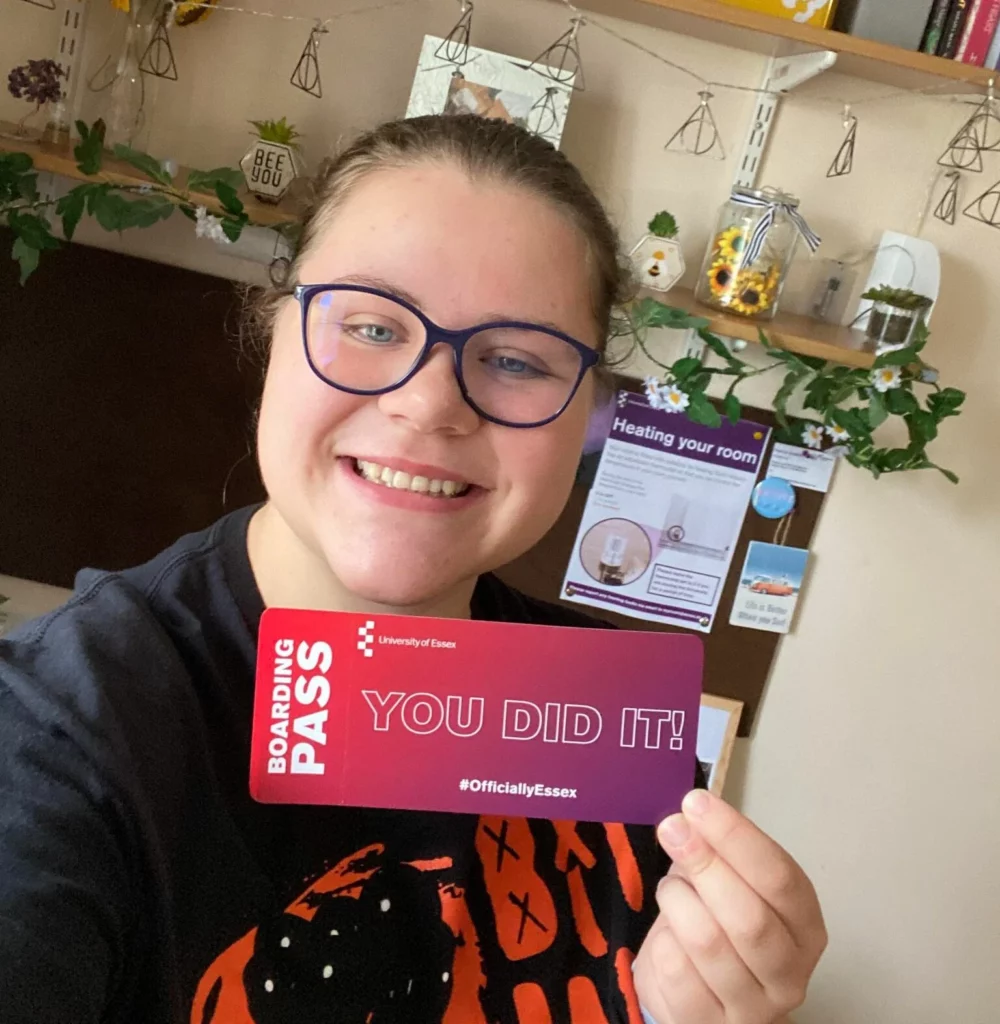Still unsure what a T Level is, or whether it’s the right option for you? Take a read of our blog, as we explain all the key information you’ll need to make an informed decision about this course type.
What are T Levels?
T Levels are a new two-year qualification for 16 to 19 year olds that follows GCSEs.
Equivalent to A Levels, they have been created in collaboration with over 250 businesses and are designed to give young people a head start towards the future they want.
What does a T Level include?
80% College: The majority of the T Level is based at College where students are taught by experienced subject experts in an interactive and hands-on learning environment. At College, they’ll gain in-depth knowledge into their chosen specialism, and will develop industry-relevant skills.
20% Work Placement: The T Level includes a nine-week work placement with a local employer. The placement gives students the opportunity to gain valuable industry experience, whilst further developing their skills and knowledge employers need.

Digital Production, Design and Development T Level student, Lewis Smith, completed work experience with The Overseas Teacher, within their technology support service. He said: it was great to experience a real workplace. Even though the College is preparing us for the world of work, it was good to get first-hand experience, as it’s a totally different ball game. Before taking part in the placement I was never sure what aspect of the industry I wanted to work in, however, since being within the workplace I have found a new interest in tech support and am more career focused because of it”.
What T Level subjects are available?
T Levels are available across 23 different T Level routes nationally, and many of these are offered across East Kent Colleges Group’s family of Colleges.
Here, at EKC Broadstairs College, we currently offer T Levels in Business Management and Administration, Education and Childcare, and Digital Production, Design and Development.
What are the entry requirements?
The entry requirements are a minimum of six GCSEs at grades 9 to 5 or equivalent, ideally including English and mathematics.
It is recommended that applicants for the T Level in Digital Production, Design and Development have a Level 2 qualification in Computing or equivalent.
Applicants for the T Level in Education and Childcare will need to have a clear DBS check for entry onto the course.
How are T Levels graded?
Students who successfully complete a T Level will be awarded an overall grade of Pass, Merit, Distinction, or Distinction*, and receive a nationally recognised certificate.
To achieve one of the above grades, students must complete their technical qualification (comprised of a ‘core’ component and one or more ‘occupational specialism’ components) and work placement and meet the minimum requirements for English and mathematics (if they have not done so already).
Is a T Level Worth the Same Number of UCAS Tariff Points as an A Level?
One T Level is equivalent to three A Levels and is worth the same number of UCAS Tariff points overall.
For example, if a student achieves a Distinction* in their T Level, it is equivalent to achieving three A*s at A Level. The T Level and the three A Levels are both worth 168 UCAS Tariff points.
The table below shows how much each T Level grade is worth in UCAS Tariff points, and the equivalent A Level grades:
| UCAS Tariff points | T Level Overall Grade | A Level Grades |
| 168 | Distinction* (A* on the ‘core’ and distinction in the ‘occupational specialism’) | A*A*A* |
| 144 | Distinction | AAA |
| 120 | Merit | BBB |
| 96 | Pass (C or above on the ‘core’) | CCC |
| 72 | Pass (D or E on the ‘core’) | DDD |
What can you do after a T Level?
After completing a T Level, students can enter:
- Employment
- University
- A Higher Apprenticeship
- A Traineeship
- Other further study
Education and Childcare alumni, Molly Parsons has gone on to study Psychology with Cognitive Neuroscience at Colchester University. When we spoke to her, she said: “I found that the T Level course allowed me to grow steadily and learn in-depth about the world of childcare and education, which helped me achieve my Level 3 qualification and gain a place at university. I particularly enjoyed going to placement and putting the theory into practice.”

Want to Know More?
To learn more about T Levels, visit our T Levels page or email our friendly team: tlevels-broadstairs@ekcgroup.ac.uk


